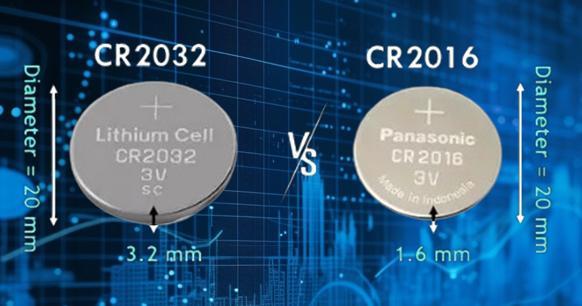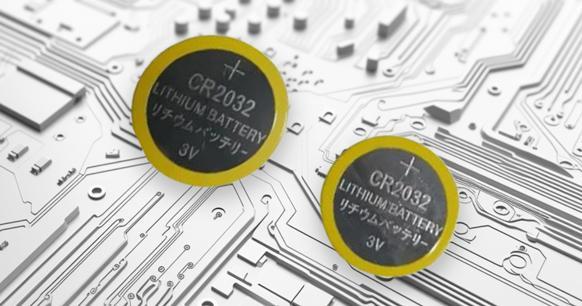
Microchip Intros AI-Powered Coding Assistant for Embedded Developers
Today, Microchip Technology introduced the MPLAB AI Coding Assistant, an advanced AI-powered software development tool designed to enhance coding efficiency for embedded engineers.
Integrated as a Microsoft Visual Studio Code (VS Code) extension, the AI assistant builds on Microchip’s proprietary large language model (LLM) to offer developers real-time support while programming microcontrollers and microprocessors.
All About Circuits had the chance to talk with Microchip’s Chief Operating Officer, Rich Simoncic, and VP of Development Tools and Academic Programs, Rodger Richey, to see a demonstration of the new tool firsthand.
Intelligent Code Assistance
The MPLAB AI Coding Assistant is built on Continue, an open-source AI-based code assistant that allows for interactive, real-time coding support. The chat-based interface, preconfigured with Microchip’s AI chatbot, provides tailored responses specific to the company’s microcontrollers, development tools, and software libraries.
Developers using the tool can access detailed technical insights automatically through the coding assistant without needing to manually search datasheets or external documentation.
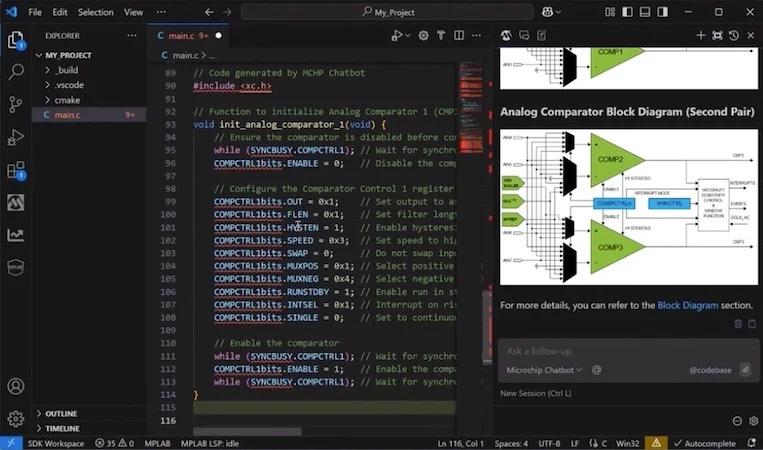
The AI coding assistant referencing block diagrams within a part’s datasheet. (Click on image to enlarge)
One of the major architectural innovations is the tool’s ability to vectorize datasheets and technical documentation so that complex information—such as register maps, memory structures, and peripheral configurations—is accessible within the VS Code environment. Rather than relying on static references, the AI assistant actively retrieves relevant documentation based on the developer’s queries, dynamically presenting block diagrams, register definitions, and example implementations in the IDE.
According to Richey this approach is intended to keep developers focused.
“The real target of why we developed this assistant was to keep a developer in the tool. Any time you have to get out of the IDE to find a datasheet or some other piece of information, it's very distracting and counterproductive.”
Automating Embedded Code Generation and Debugging
A primary advantage of the MPLAB AI Coding Assistant is its ability to generate context-aware embedded code. For example, a developer initiating a project for a microcontroller can input a high-level command such as:
“Set up an ADC to sample every second and output to UART.”
The AI assistant then interprets the request, references Microchip’s vectorized datasheets, and generates fully functional C-based initialization code, including proper register settings, interrupt configurations, and peripheral mappings. This process streamlines development by reducing context-switching and allowing engineers to remain focused within the IDE without referring to external documentation.
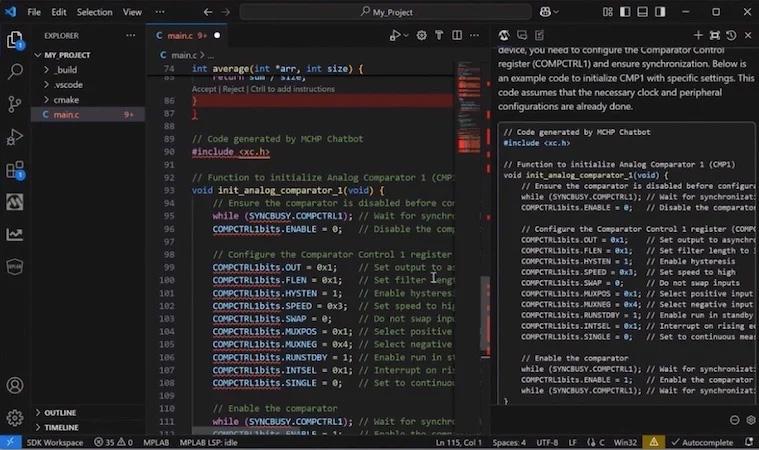
The AI tool is shown here generating code within a VS Code environment. (Click on image to enlarge)
Beyond code generation, the AI assistant offers in-line error detection and debugging assistance. The tool automatically scans generated or manually written code for syntax inconsistencies, incorrect register values, and misconfigured peripheral settings.
Engineers can also request explanations for existing code, with the AI assistant decomposing logic structures, commenting functions, and even suggesting efficiency improvements based on Microchip’s software best practices.
Integrated Access to Microchip’s Documentation and Resources
Where more general AI coding assistants rely on pre-trained, general-purpose datasets, MPLAB AI is designed to function as a dynamic repository of Microchip’s embedded development knowledge. That means that engineers can query specific register definitions, peripheral functions, and compiler directives and receive responses that integrate live updates from Microchip’s knowledge base.
As Richey puts it “Instead of having to go out there and figure it out or train something on their own, here’s a model that’s fully grounded and vetted to use.”
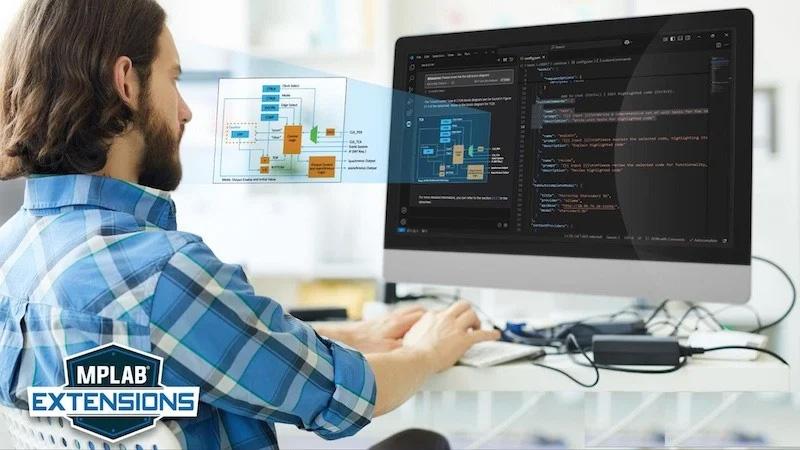
The AI coding assistant brings graphical assets into the VS Code environment. (Click on image to enlarge)
This feature proves particularly valuable when dealing with Microchip’s extensive microcontroller product line, where differences in core architecture, instruction sets, and peripheral availability can be challenging to track manually.
For instance, a developer working with an ATSAME54 microcontroller can request differentiation from a PIC32CM, and the assistant will return a structured comparison based on memory architecture, clock configurations, and available I/O peripherals.
Another significant advantage is the AI assistant’s ability to embed graphical assets from Microchip’s documentation directly into VS Code. When queried, the tool retrieves block diagrams, waveform illustrations, and system schematics that are normally buried within datasheets.
Future Roadmap and Expanding Capabilities
Currently, MPLAB AI Coding Assistant supports 8-bit to 32-bit microcontrollers, with 64-bit support scheduled for a future update. Microchip plans to expand its AI-powered documentation set beyond datasheets, integrating compiler user guides, software library manuals, and training transcripts into the assistant’s searchable knowledge base. Additionally, the company is exploring voice-enabled interaction for engineers to engage with the assistant using speech commands.
From a commercial availability standpoint, MPLAB AI Coding Assistant is available free of charge, with potential subscription-based advanced features in future iterations. Microchip intends to continuously update the AI model with the latest microcontroller reference material, IDE enhancements, and optimized programming workflows.
As Simoncic put it, this real-time data access eliminates inefficiencies.
“With a lot of these chatbots that you can find today, when they’re published, they’re instantly old. With Microchip’s, we’re training, we’re providing new documents into the chatbot every day. It’s fresh, it’s dynamic, the very latest information.”
All images used courtesy of Microchip.



